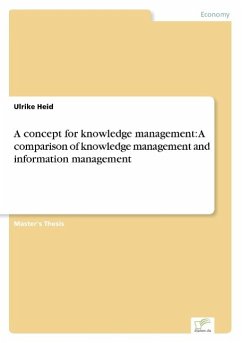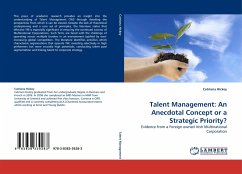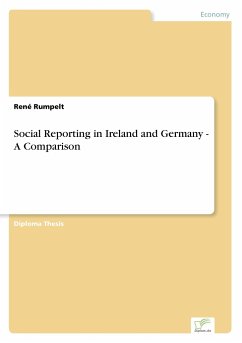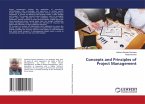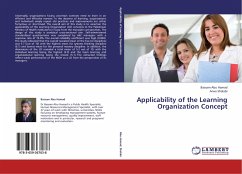Master's Thesis from the year 1999 in the subject Business economics - Business Management, Corporate Governance, University of Strathclyde (Information Science), language: English, abstract: Inhaltsangabe:Abstract:
A new discipline that has arisen recently as a hot new topic for management is knowledge management. Not only is management challenged to face the strategic importance for competitive advantage that business consultants promise, but also information professionals who have been engaged in this subject already for quite a long time.
This dissertation focuses on a comparison of knowledge management with information management, based on a model that embraces both information and knowledge. Founded on an examination of the unique characteristics of knowledge, the concept of knowledge management is introduced. To stay in synch with the pace of change in their operational and competitive environments organisations require a balance of organisational competencies for knowledge management and change proficiency. This requires a new kind of learning called double-loop learning and implies knowledge flows across organisational boundaries. Knowledge Management can be expected to fundamentally change the management perspective on movements such as Total Quality Management and Business Re-engineering, forcing management to basically rethink the theory of processes.
Another focus of this dissertation is on the role that technology plays in knowledge management. As information professionals are traditionally concerned with technology it has been considered to look at knowledge management technology in more detail. Technology is one of six key factors facilitating knowledge management. The focus further on is on approaches to classify knowledge management technology and a survey of the knowledge management software market. The dissertation is accomplished through a glossary of the most important technical terms in context with knowledge management as well as a list of products from knowledge management vendors.
The conclusion summarises the most important findings. Those are that information management and knowledge management complement each other, the first centring on the input-process-output sequence, the latter around the knowledge creation of people to deal with those processes. It becomes obvious that human resource management has to play its part in dealing with the soft part of knowledge management. Thus technology has a minor role in introducing knowledge management in an organisation though it can play an important part in supporting knowledge-related processes. Most companies have already got in place the technological infrastructure.
The aim of knowledge management applications is to connect new knowledge management software with knowledge silos already in place, making knowledge available to everybody at any time regardless of where that knowledge resides. The market survey shows that the market for those applications is still immature. Promising products indicate the market potential that is predicted to explode in the next couple of years.
Inhaltsverzeichnis:Table of Contents:
DECLARATION1
ACKNOWLEDGEMENTS2
TABLE OF CONTENTS3
ABSTRACT5
ZUSAMMENFASSUNG7
LIST OF FIGURES AND TABLES9
INTRODUCTION10
Aims and Objective11
Methodology11
Why Knowledge Management?12
Focus of dissertation15
Chapter Overview16
1.INFORMATION MANAGEMENT18
1.1Object areas of information management19
1.2A framework for information management21
1.3The core information process24
2.A MODEL FOR INFORMATION AND KNOWLEDGE27
2.1"Information model" versus "knowledge model"28
2.2"Static model" versus "dynamic model"29
2.3Working definition of information31
2.4Working definition of knowledge32
2.5The relation between information and knowledge in the dynamic ...
Hinweis: Dieser Artikel kann nur an eine deutsche Lieferadresse ausgeliefert werden.
A new discipline that has arisen recently as a hot new topic for management is knowledge management. Not only is management challenged to face the strategic importance for competitive advantage that business consultants promise, but also information professionals who have been engaged in this subject already for quite a long time.
This dissertation focuses on a comparison of knowledge management with information management, based on a model that embraces both information and knowledge. Founded on an examination of the unique characteristics of knowledge, the concept of knowledge management is introduced. To stay in synch with the pace of change in their operational and competitive environments organisations require a balance of organisational competencies for knowledge management and change proficiency. This requires a new kind of learning called double-loop learning and implies knowledge flows across organisational boundaries. Knowledge Management can be expected to fundamentally change the management perspective on movements such as Total Quality Management and Business Re-engineering, forcing management to basically rethink the theory of processes.
Another focus of this dissertation is on the role that technology plays in knowledge management. As information professionals are traditionally concerned with technology it has been considered to look at knowledge management technology in more detail. Technology is one of six key factors facilitating knowledge management. The focus further on is on approaches to classify knowledge management technology and a survey of the knowledge management software market. The dissertation is accomplished through a glossary of the most important technical terms in context with knowledge management as well as a list of products from knowledge management vendors.
The conclusion summarises the most important findings. Those are that information management and knowledge management complement each other, the first centring on the input-process-output sequence, the latter around the knowledge creation of people to deal with those processes. It becomes obvious that human resource management has to play its part in dealing with the soft part of knowledge management. Thus technology has a minor role in introducing knowledge management in an organisation though it can play an important part in supporting knowledge-related processes. Most companies have already got in place the technological infrastructure.
The aim of knowledge management applications is to connect new knowledge management software with knowledge silos already in place, making knowledge available to everybody at any time regardless of where that knowledge resides. The market survey shows that the market for those applications is still immature. Promising products indicate the market potential that is predicted to explode in the next couple of years.
Inhaltsverzeichnis:Table of Contents:
DECLARATION1
ACKNOWLEDGEMENTS2
TABLE OF CONTENTS3
ABSTRACT5
ZUSAMMENFASSUNG7
LIST OF FIGURES AND TABLES9
INTRODUCTION10
Aims and Objective11
Methodology11
Why Knowledge Management?12
Focus of dissertation15
Chapter Overview16
1.INFORMATION MANAGEMENT18
1.1Object areas of information management19
1.2A framework for information management21
1.3The core information process24
2.A MODEL FOR INFORMATION AND KNOWLEDGE27
2.1"Information model" versus "knowledge model"28
2.2"Static model" versus "dynamic model"29
2.3Working definition of information31
2.4Working definition of knowledge32
2.5The relation between information and knowledge in the dynamic ...
Hinweis: Dieser Artikel kann nur an eine deutsche Lieferadresse ausgeliefert werden.

